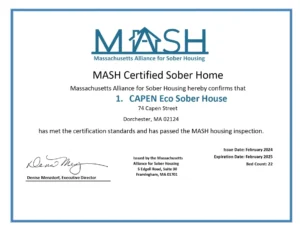How Meditation and Mindfulness Support Addiction Recovery

Reflective practices can help foster an environment of internal understanding and growth. Cravings are a natural part of addiction recovery, and learning to observe and ride them out without https://ecosoberhouse.com/ acting on them is a key skill. Visualizations and body scans can be effective tools for this purpose, offering a means to acknowledge cravings without judgment or reaction. There is a growing body of research that shows the effectiveness of meditation in addiction recovery. Regular meditation enhances focus and concentration by training the mind to stay on task. Studies suggest it leads to structural changes in the brain, promoting cognitive functions related to attention.
Get Compassionate Addiction Recovery Treatment in South Florida
Regular meditation practice helps individuals develop the mental and emotional resilience needed to overcome addictive behaviors and maintain long-term sobriety. Meditation assists in managing cravings and withdrawal symptoms through increased awareness of triggers. Techniques like urge surfing allow individuals to observe their cravings without succumbing to them. Research shows that regular meditation practice can diminish the power of cravings by training the brain to disengage from attachment to these desires.
- Whether you are struggling with addiction, mental health or both, our expert team is here to guide you every step of the way.
- It’s like planting a garden—you don’t see results overnight, but with consistent care, beautiful things grow.
- When it comes to meditation techniques, you’ll want to try different methods and find the type that works for you.
- Explore resolving to be sober with insights on health, relationships, and strategies for lasting recovery.
Investigating What Causes Alcoholism

The researchers found that mindfulness-based interventions significantly reduced substance use, cravings, and relapse rates compared to control conditions (Zgierska et al., 2009). Additionally, mindfulness can enhance emotional healing by providing coping strategies that are beneficial for managing stress and triggers. Through practices such as meditation and mindful breathing, individuals develop a greater capacity to respond to trauma-related cues without automatically resorting to substance use. Meditation is a valuable part of these services for interested clients.Contact The Recovery Villagetolearn about admissions, treatment options and how our programs can help you begin living a substance-free life.
Six Types of Meditation for Addiction Recovery
These practices empower individuals with the tools to navigate the complexities of their emotions and experiences without resorting to substance use. By fostering a mindful and structured approach to wellness, individuals can achieve lasting recovery and emotional well-being. Many studies indicate that mindfulness meditation – a specific type of meditation – that focuses on awareness of the present moment may help reduce cravings for drugs and alcohol. Mindfulness-based interventions like mindfulness meditation have been proven effective for reducing relapse rates in those with substance use disorders (addictions). Addiction recovery is one of the intersections of physical and mental health where meditation has been shown to have a huge impact. This may be due to the fact that such a large number of addicts also have co-occurring disorders.

Adam Vibe Gunton is an American author, speaker and thought leader in addiction treatment and recovery. After overcoming homelessness and drug addiction, Adam found his life’s purpose in helping addicts find the same freedom he found. As Founder and Executive Director of the 501(c)3 nonprofit, Recovered On Purpose, and Managing Partner of Behavioral Health Partners, Adam has helped thousands find freedom from addiction all over the world. For those looking to deepen their experience with meditation, a wealth of resources and communities are available. These include peer support groups, online communities, and access to qualified meditation instructors specializing in addiction recovery. One of the most common barriers to starting a meditation practice is a perceived lack of time.

A former reading specialist and learning center director, Terry loved her years working with children in the educational field. She has written extensively for print and online publications specializing in education and health issues. For the last six years, her writing focus has been on addiction and mental health issues. The purpose of this type of meditation is to develop inner peace and calm the mind. It is usually done while sitting in a comfortable position with eyes closed. If your mind starts to wander from the present, bring it back by refocusing meditation for addiction recovery on your breathing.
It’s about really listening, being present, and responding thoughtfully rather than reacting impulsively. This can lead to more meaningful connections and deeper insights in your recovery journey. Loving-kindness meditation might sound a bit mushy, amphetamine addiction treatment but don’t knock it till you’ve tried it.